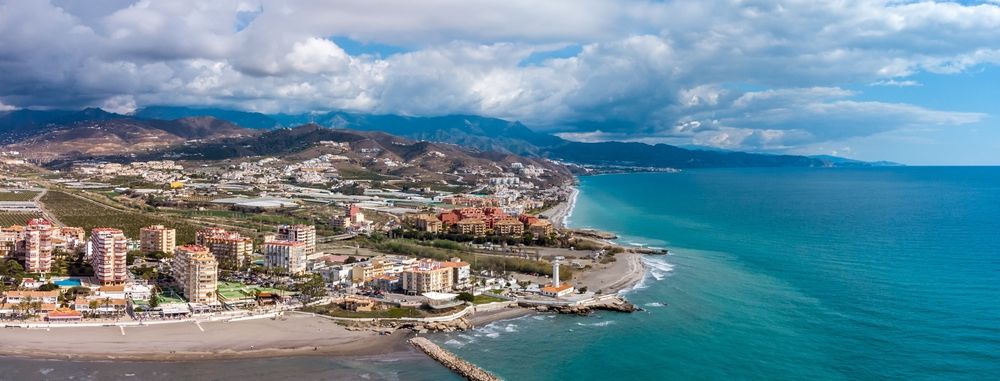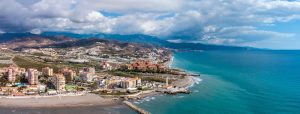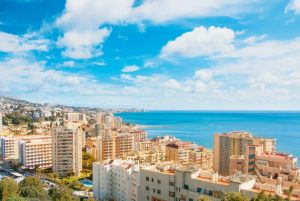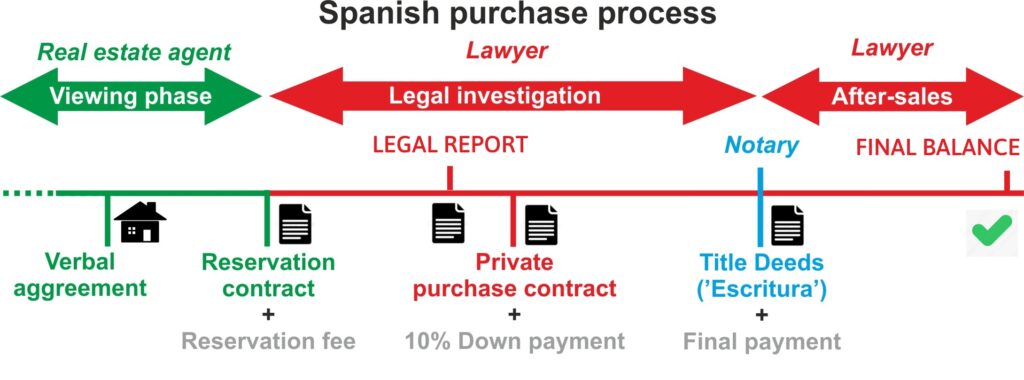DEFINITIVE LIMITS HOLIDAY LETTINGS IN SPAIN (3rd of April 2025)
 As we’ve covered in previous posts, holiday lets have created great controversy in some cities and municipalities with a large influx of tourists over the last few years. This activity has been expanding rapidly in the main tourist cities in Spain, the city centres of which have undergone a social and economic transformation. The resident population has been disappearing and, on top of this, many buildings have been transformed for their operation in the holiday lets market.
As we’ve covered in previous posts, holiday lets have created great controversy in some cities and municipalities with a large influx of tourists over the last few years. This activity has been expanding rapidly in the main tourist cities in Spain, the city centres of which have undergone a social and economic transformation. The resident population has been disappearing and, on top of this, many buildings have been transformed for their operation in the holiday lets market.
Since 2020, property investment has multiplied in some cities due to the interest among foreign buyers in purchasing properties to be used as holiday lets. This investment activity has led to a long-term housing shortage and the loss of traditional businesses in tourist areas. A significant proportion of local residents reject this phenomenon called tourist gentrification.
Finally, due to this controversy at the national level, an amendment to the Horizontal Property Law (LPH) has been adopted to be applied throughout the national territory in Spain from the 3rd of April 2025, which we understand will entail a change in the operation of holiday lettings in housing blocks and urban properties where a Homeowners’ Association (Comunidad de Propietarios) has been formed.
National government limits holiday lettings through Community of Owners
All homes under the Horizontal Property System whose owners seek to let the homes in the holiday lettings market in Spain will need express authorisation from the Homeowners’ Association so that holiday lettings can be carried out in the home, i.e. to obtain a letting licence from the Autonomous Community where the property is located.
Without such express authorisation, homeowners won’t be able to engage in holiday lettings, with a potential warning from the Homeowners’ Association to cease operations and the instigation of legal proceedings in the event that homeowners decide to ignore that warning.
When will this authorisation from the Homeowners’ Association be necessary to engage in holiday lettings?
From the 3rd of April 2025, this authorisation from the Homeowners’ Association will be necessary, this being the date of entry into force the this new requirement.
Practical possibilities:
- We understand that the Junta of Andalusia will amend its current application form to include a section where such express authorisation must be attached.
- The Andalusia Council (Junta de Andalucia) however could also opt for the owner to sign an affidavit stating that the home has received such authorisation as part of the form, without the requirement to attach it to the original affidavit.
What is the majority required in the Homeowners’ Association to approve authorisation for holiday lets?
Such express authorisation can only be obtained by a majority of 3/5 (=60%) of those present, representing at least 3/5 of owners. This is a very high majority and, as a general rule, Homeowners’ Association meetings very often can’t reach such majorities among those present and represented.
Which are the practical problems in applying such a majority of 3/5?
The rule provides that the express resolution approving, limiting, conditioning or prohibiting the operation of holiday lets will require a favourable vote of 3/5 of owners, which must also represent 3/5 of the shares in the property. In other words, the same majority is required to both authorise and prohibit holiday lettings, i.e. 3/5 of homeowners. However, this leads to a practical aspect that is controversial.
We could see the case of a Homeowners’ Association that can’t prohibit holiday lets due to not reaching a 3/5 majority, but where authorisation to engage in these operations can also not be given as there is no 3/5 majority. This would be the case for Associations where 55% are in favour and 45% are against holiday lets, for instance.
In other words, in these cases, neither of the two groups of homeowners with opposing interests, one in favour and one against holiday lets, will reach the 3/5 majority to establish a ban or to provide express authorisation. However, this would tacitly enable homeowners opposing such activities to ban holiday lets without reaching a 3/5 majority, since a majority of 3/5 would not grant express authorisations and homeowners would then be unable to let their homes to holidaymakers.
For some Homeowners’ Associations, the case may be that failing to obtain express authorisation to use a property as a holiday let by a majority of 3/5 would mean a tacit ban on holiday lets, without such ban being supported by the necessary 3/5 required by the regulations for such a ban to be established, without the need for the activity to be prohibited expressly.
What practical problems arise from this requirement of express authorisation for holiday lets?
In addition to the significant issue of requiring a majority of 3/5, a practical problem to obtain express authorisation will be the time when the Association is set to meet to vote on such authorisation. Usually, Homeowners’ Associations meet once a year at an Ordinary Association Meeting to vote on annual matters. If the Association meets once a year in July, for example, and a homeowner requests the Association to provide express authorisation to use the home as a holiday let in November, the homeowner may have to wait many months to obtain such authorisation.
The Law doesn’t establish a set timeline for Homeowners’ Associations to meet and vote on granting such an authorisation for holiday lets. We understand that, there being no deadline for the vote to take place, simply waiting for the Meeting to be called to vote on granting such authorisation may entail months of waiting for homeowners interested in letting their properties to holidaymakers.
What’s going to happen to homes already registered to be used as holiday lets?
Properties that are already registered in the Andalusian Tourism Register to be used as holiday lets will not require such authorisation from the Association to continue to operate as holiday lets. In other words, the change in the law is not retroactive for homeowners with a valid RTA license in their name.
What should I do if my home isn’t registered in the Tourism register and I want to rent it out?
If your property isn’t registered in the Andalusian Tourism Register and you’re thinking of using it for the holiday lettings market, you will need to submit the Affidavit before the 3rd of April, in order to avoid having to request express authorisation from the Association to engage in such activities. Since this is a declaration of responsibility, the effective date of the license is the date of application.
If you’re in the process of buying an urban home in Andalusia, the home isn’t registered in the Andalusian Tourism Register and you want to let it out to holidaymakers, we advise that you agree with the seller so that the seller can register it in his or her name before 3 April, so that you can then submit a permit transfer application once you sign the Deed of Sale.
Is it necessary to obtain authorisation from the Homeowners’ Association if you buy a property already registered in the Andalusian Tourism Register?
When buying a property already registered in the Andalusian Tourism Register (RTA) to use as a holiday let, the new owner who whishes to continue to engage in these activities must file a permit-transfer form for the name change to engage in holiday lettings. The name change may take several months to process, but the applicable regulations are those of the date of application for the change.
The main question is whether, with the permit-transfer form, it is necessary to meet all the requirements to register the home in the RTA on the date of submission of the permit transfer or, on the contrary, whether the home being previously registered makes it unnecessary to renew these requirements and, therefore, the regulations in force at that time can’t be enforced upon the buyer. This isn’t a minor issue, due to the large number of home sales intended as investments in the holiday lettings market, with many of these property purchases involving properties already registered in the RTA, as the seller also operated the property as a holiday let.
The current regulations of the Andalusia Council don’t expressly refer to permit transfers for a home already registered in the RTA. If we look at the current form that the Council has published for permit transfers, titled notification, it doesn’t require accrediting the urban-planning conditions or showing the Association’s authorisation for permit transfers. The form doesn’t offer the possibility of accrediting these requirements for permit transfers. It is not known whether the RTA registry will adjust the name change form in the future and in what way.
Limits holiday lettings when transferring property
This means that, if we look at that form, the Andalusia Council understands that, since the property is already registered, it isn’t necessary to evidence compliance with the regulations of the Homeowners’ Association as, otherwise, we believe they would require this for a permit transfer. Obviously, the form titled affidavit (declaración responsable), used to register a new property in the RTA, does require such evidence for new registrations.
This being a controversial subject and open to interpretation, taking the above into account, we understand that holiday letting licences in Andalusia are linked to the property. We understand that filing a permit transfer application for the registration to be transferred to the property buyer should not entail a requirement to comply with the new requirements established for holiday lets in force at the time of submitting the permit-transfer form.
We believe that there are arguments to understand that licences for holiday lets are linked to a property and not to an owner and, therefore, if a property is already registered as a holiday let, it shouldn’t need to comply with the requirements on the date of filing the permit-transfer application. However, this issue isn’t agreed upon, for which reason it is certain to give rise to many contradictory opinions in the future. The Andalusia Council themselves, when contacted by phone, were unable to clarify and settle this matter and some officers have said that it will be necessary to evidence compliance with the new requirements, even if this is contradicted by the ownership-transfer form in its current version.
C&D Solicitors, specialist lawyers in property law in Andalusia
At C&D Solicitors, we specialise in providing property advice to foreign clients, whether they are individuals seeking to buy a second home or an investment property in Spain, or investment companies seeking to grow their asset portfolio and take advantage of the capital gains they can obtain in the property market and in property operation.
We offer “full service” advice throughout the process in your native language: English, Dutch, Swedish, French and German. You can call us at 0034 952 532 582, send us a WhatsApp message at 0034 639 54 16 02 or write to us at info@cdsolicitors.com. We’ll look into your case, we’ll send you information about the process and a cost estimate for this, with no commitment whatsoever.
Author: Gustavo Calero Monereo, lawyer at C&D Solicitors (Torrox & Malaga, Andalusia)




































